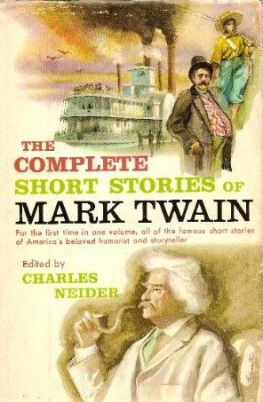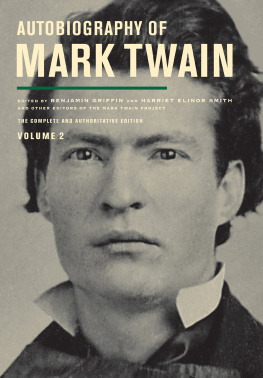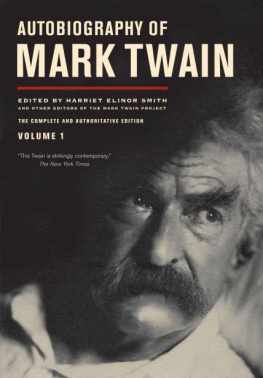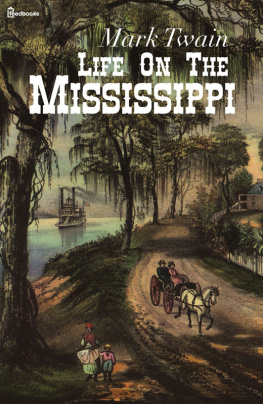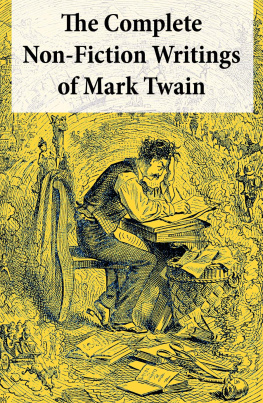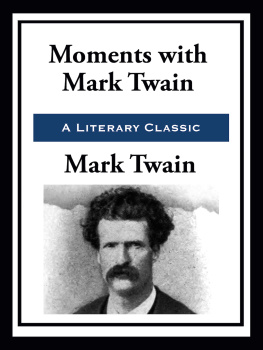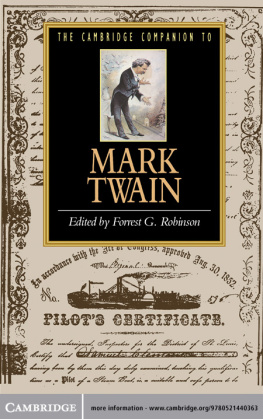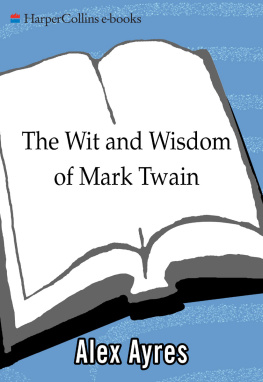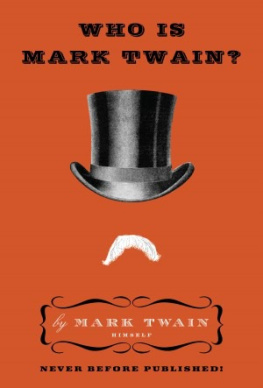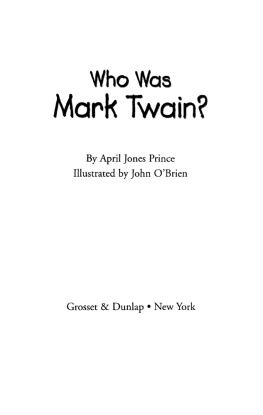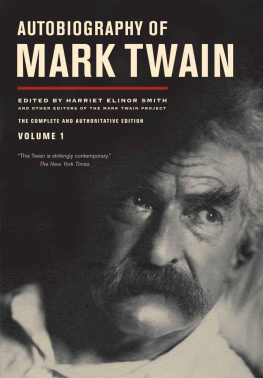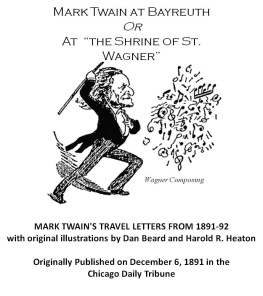Mark Twain - On the Decay of the Art of Lying
Here you can read online Mark Twain - On the Decay of the Art of Lying full text of the book (entire story) in english for free. Download pdf and epub, get meaning, cover and reviews about this ebook. year: 2004, genre: Non-fiction. Description of the work, (preface) as well as reviews are available. Best literature library LitArk.com created for fans of good reading and offers a wide selection of genres:
Romance novel
Science fiction
Adventure
Detective
Science
History
Home and family
Prose
Art
Politics
Computer
Non-fiction
Religion
Business
Children
Humor
Choose a favorite category and find really read worthwhile books. Enjoy immersion in the world of imagination, feel the emotions of the characters or learn something new for yourself, make an fascinating discovery.

- Book:On the Decay of the Art of Lying
- Author:
- Genre:
- Year:2004
- Rating:5 / 5
- Favourites:Add to favourites
- Your mark:
- 100
- 1
- 2
- 3
- 4
- 5
On the Decay of the Art of Lying: summary, description and annotation
We offer to read an annotation, description, summary or preface (depends on what the author of the book "On the Decay of the Art of Lying" wrote himself). If you haven't found the necessary information about the book — write in the comments, we will try to find it.
On the Decay of the Art of Lying — read online for free the complete book (whole text) full work
Below is the text of the book, divided by pages. System saving the place of the last page read, allows you to conveniently read the book "On the Decay of the Art of Lying" online for free, without having to search again every time where you left off. Put a bookmark, and you can go to the page where you finished reading at any time.
Font size:
Interval:
Bookmark:
ON THE DECAY OF THE ART OF LYING
by Mark Twain
ESSAY, FOR DISCUSSION, READ AT A MEETING OF THE HISTORICAL AND ANTIQUARIAN CLUB OF HARTFORD, AND OFFERED FOR THE THIRTY-DOLLAR PRIZE.
Observe, I do not mean to suggest that the custom of lying has suffered any decay or interruptionno, for the Lie, as a Virtue, A Principle, is eternal; the Lie, as a recreation, a solace, a refuge in time of need, the fourth Grace, the tenth Muse, man's best and surest friend, is immortal, and cannot perish from the earth while this club remains. My complaint simply concerns the decay of the art of lying. No high-minded man, no man of right feeling, can contemplate the lumbering and slovenly lying of the present day without grieving to see a noble art so prostituted. In this veteran presence I naturally enter upon this theme with diffidence; it is like an old maid trying to teach nursery matters to the mothers in Israel. It would not become to me to criticise you, gentlemenwho are nearly all my eldersand my superiors, in this thingif I should here and there seem to do it, I trust it will in most cases be more in a spirit of admiration than fault-finding; indeed if this finest of the fine arts had everywhere received the attention, the encouragement, and conscientious practice and development which this club has devoted to it, I should not need to utter this lament, or shred a single tear. I do not say this to flatter: I say it in a spirit of just and appreciative recognition. [It had been my intention, at this point, to mention names and to give illustrative specimens, but indications observable about me admonished me to beware of the particulars and confine myself to generalities.]
No fact is more firmly established than that lying is a necessity of our circumstancesthe deduction that it is then a Virtue goes without saying. No virtue can reach its highest usefulness without careful and diligent cultivationtherefore, it goes without saying that this one ought to be taught in the public schoolseven in the newspapers. What chance has the ignorant uncultivated liar against the educated expert? What chance have I against Mr. Peragainst a lawyer? Judicious lying is what the world needs. I sometimes think it were even better and safer not to lie at all than to lie injudiciously. An awkward, unscientific lie is often as ineffectual as the truth.
Now let us see what the philosophers say. Note that venerable proverb: Children and fools always speak the truth. The deduction is plain adults and wise persons never speak it. Parkman, the historian, says, "The principle of truth may itself be carried into an absurdity." In another place in the same chapters he says, "The saying is old that truth should not be spoken at all times; and those whom a sick conscience worries into habitual violation of the maxim are imbeciles and nuisances." It is strong language, but true. None of us could live with an habitual truth-teller; but thank goodness none of us has to. An habitual truth-teller is simply an impossible creature; he does not exist; he never has existed. Of course there are people who think they never lie, but it is not soand this ignorance is one of the very things that shame our so-called civilization. Everybody liesevery day; every hour; awake; asleep; in his dreams; in his joy; in his mourning; if he keeps his tongue still, his hands, his feet, his eyes, his attitude, will convey deceptionand purposely. Even in sermonsbut that is a platitude.
In a far country where I once lived the ladies used to go around paying calls, under the humane and kindly pretence of wanting to see each other; and when they returned home, they would cry out with a glad voice, saying, "We made sixteen calls and found fourteen of them out" not meaning that they found out anything important against the fourteenno, that was only a colloquial phrase to signify that they were not at homeand their manner of saying it expressed their lively satisfaction in that fact. Now their pretence of wanting to see the fourteenand the other two whom they had been less lucky withwas that commonest and mildest form of lying which is sufficiently described as a deflection from the truth. Is it justifiable? Most certainly. It is beautiful, it is noble; for its object is, not to reap profit, but to convey a pleasure to the sixteen. The iron-souled truth-monger would plainly manifest, or even utter the fact that he didn't want to see those peopleand he would be an ass, and inflict totally unnecessary pain. And next, those ladies in that far countrybut never mind, they had a thousand pleasant ways of lying, that grew out of gentle impulses, and were a credit to their intelligence and an honor to their hearts. Let the particulars go.
The men in that far country were liars, every one. Their mere howdy-do was a lie, because they didn't care how you did, except they were undertakers. To the ordinary inquirer you lied in return; for you made no conscientious diagnostic of your case, but answered at random, and usually missed it considerably. You lied to the undertaker, and said your health was failinga wholly commendable lie, since it cost you nothing and pleased the other man. If a stranger called and interrupted you, you said with your hearty tongue, "I'm glad to see you," and said with your heartier soul, "I wish you were with the cannibals and it was dinner-time." When he went, you said regretfully, "Must you go?" and followed it with a "Call again;" but you did no harm, for you did not deceive anybody nor inflict any hurt, whereas the truth would have made you both unhappy.
I think that all this courteous lying is a sweet and loving art, and should be cultivated. The highest perfection of politeness is only a beautiful edifice, built, from the base to the dome, of graceful and gilded forms of charitable and unselfish lying.
What I bemoan is the growing prevalence of the brutal truth. Let us do what we can to eradicate it. An injurious truth has no merit over an injurious lie. Neither should ever be uttered. The man who speaks an injurious truth lest his soul be not saved if he do otherwise, should reflect that that sort of a soul is not strictly worth saving. The man who tells a lie to help a poor devil out of trouble, is one of whom the angels doubtless say, "Lo, here is an heroic soul who casts his own welfare in jeopardy to succor his neighbor's; let us exalt this magnanimous liar."
An injurious lie is an uncommendable thing; and so, also, and in the same degree, is an injurious trutha fact that is recognized by the law of libel.
Among other common lies, we have the silent liethe deception which one conveys by simply keeping still and concealing the truth. Many obstinate truth-mongers indulge in this dissipation, imagining that if they speak no lie, they lie not at all. In that far country where I once lived, there was a lovely spirit, a lady whose impulses were always high and pure, and whose character answered to them. One day I was there at dinner, and remarked, in a general way, that we are all liars. She was amazed, and said, "Not all?" It was before "Pinafore's" time so I did not make the response which would naturally follow in our day, but frankly said, "Yes, allwe are all liars. There are no exceptions." She looked almost offended, "Why, do you include me?" "Certainly," I said. "I think you even rank as an expert." She said "Sh-'sh! the children!" So the subject was changed in deference to the children's presence, and we went on talking about other things. But as soon as the young people were out of the way, the lady came warmly back to the matter and said, "I have made a rule of my life to never tell a lie; and I have never departed from it in a single instance." I said, "I don't mean the least harm or disrespect, but really you have been lying like smoke ever since I've been sitting here. It has caused me a good deal of pain, because I'm not used to it." She required of me an instancejust a single instance. So I said
Font size:
Interval:
Bookmark:
Similar books «On the Decay of the Art of Lying»
Look at similar books to On the Decay of the Art of Lying. We have selected literature similar in name and meaning in the hope of providing readers with more options to find new, interesting, not yet read works.
Discussion, reviews of the book On the Decay of the Art of Lying and just readers' own opinions. Leave your comments, write what you think about the work, its meaning or the main characters. Specify what exactly you liked and what you didn't like, and why you think so.

